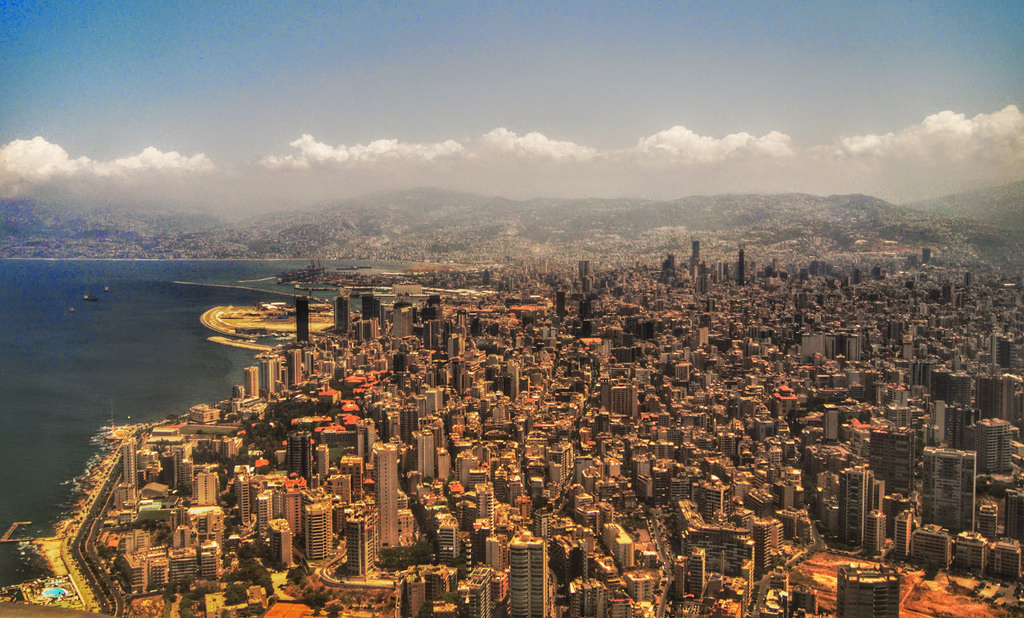Amidst a Storm of Discontent, Lebanon Gears Up for its First Parliamentary Elections in Nearly a Decade

In late January a winter storm swept hundreds of tons of trash onto resort beaches north of Beirut, covering the once picturesque shore in a sea of sodden plastic and debris.
More than just an environmental catastrophe, it was a dramatic and pungent reminder of the many problems afflicting Lebanon’s infrastructure. Frequent blackouts, water shortages, smog and traffic congestion plague Beirut and its environs, but the trash-filled beaches left a familiarly foul odor. If this were an isolated event, perhaps Lebanese citizens wouldn’t have found the situation quite so frustrating. However, the closure of a landfill near Beirut in 2015 left the city covered in waste, which festered in the hot summer sun. Beirutis took to the streets in what became known as the “You Stink!” movement to protest the government’s failure to fix the trash crisis. The movement snowballed into a spirited series of demonstrations against government corruption and elite rent-seeking.
The outrage caused by the waste crisis represented more than just discontent with government incompetence; it was a reaction to the fundamentally dysfunctional Lebanese political structure and ruling class. Lebanon’s current parliament has twice extended its own mandate, continually postponing elections and stalling much-needed reforms. New actors have essentially been barred from political participation while parliament continues to contain a host of usual suspects, many of whom are accused of graft, greed and outright corruption.
The failure of Lebanon’s entrenched elites to address the country’s woes has spurred the emergence of civil society organizations and political movements independent of the mainstream parties that have dominated Lebanon since the civil war. Additionally, many Millennials, born after the conclusion of the war, question the sectarian status quo that strictly divides Lebanon’s political parties by its many religious confessions. Many young people have chosen to form independent, cross-sectarian movements, joining forces with reform-minded politicians to establish a broad opposition coalition promoting fresh candidate lists.
Parliamentary elections, Lebanon’s first since 2009, are slated to take place on May 6. In the past, independent movements and their progressive platforms could be easily dismissed by political elites, but the new proportional electoral law may provide an opportunity for these independents to win seats in parliament. The new law was approved last year to replace the previous winner-takes-all system, which required voters to register in their ancestral regions rather than their current place of residence. However, the new law is not without its faults. Critics say the law redraws voting districts along overtly sectarian lines, lacks a women’s quota, fails to lower the voting age to 18, does not establish an independent electoral commission, and fails to cap electoral expenditures; possibly opening elections up to the highest bidder.
Despite these challenges, the potential for change remains. Independent movements have steadily gained supporters since municipal elections in 2016. At the same time, their successful capture of a high proportion of discontented voters could motivate some mainstream parties to introduce reform measures. The ongoing civil war in neighboring Syria has greatly diminished the Syrian regime’s direct involvement in Lebanese politics, yet the detrimental influence of other regional powers allows the status quo to persist. However, if cross-sectarian independent movements can win just one seat, it could inspire Lebanese citizens to confront the elites and finally take out the trash.
Lebanon is the size of Connecticut, but has had an extremely tumultuous history in an already tumultuous region. The fragile internal balance has often been complicated by the subversions of its neighbors, Syria and Israel and a target of other foreign actors due to its huge diaspora population. Lebanon has recently been at a watchful peace, but unrest in the tiny country has the potential to drag the whole region down with it and cause ripples further afield. With Syria already in flames, it is critical that there is a peaceful transition of government and another Levantine crisis averted.
Top